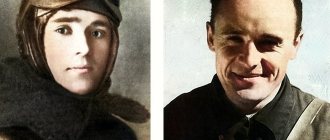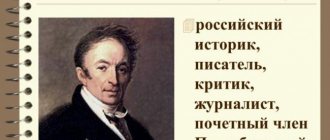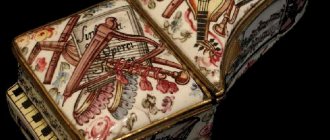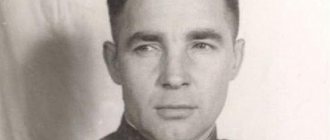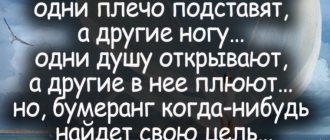The publication is devoted to the expression “through thorns to the stars”, the meaning and origin of which we will consider in detail, using historical facts and generally accepted theses. We, people, need the right priorities in life; everyone should have their own indestructible credo, guiding a person towards his cherished goal. It is this expression, or rather, its semantic message, like a beacon in pitch darkness, that illuminates the path of life.
Origin of the phrase
For the first time, the phrase “through thorns to the stars” was heard in Latin. The meaning of this phrase is revealed in the work of the Roman philosopher and thinker Seneca. This figure made a significant contribution to history, literature and philosophy; his works are still studied in the departments of leading universities around the world. In his work “Furious Hercules,” the philosopher describes the exploits of the legendary hero, and he emphasized the results of his journey with the phrase: “The path from the earth to the stars is not smooth.” In Latin the slogan was: Non levis astra vitam terrae. The readers really liked the phrase, because every person’s life path is not strewn with roses. But for greater effect, the verbal construction had to be strengthened somehow. The dull, original terra - earth, had to be replaced with a more capacious word.
What else is there[edit]
- We have already seen you somewhere: Vadim Ledogorov (Stepan) has already starred with Richard Viktorov in “Youths in the Universe” in the role of the young alien Agapit. His father Igor Ledogorov (Rakan) also played Father Agapit, the commander of the orbital station.
- Elena Metelkina later played Polina in Guest from the Future.
- Is the captain of the Astra, this cool bearded man Oleg Dreyer (Alexander Mikhailov), the same klutz Vasily from Love and Doves? Yes.
- Stepan’s grandmother Maria Pavlovna’s mention of Pluto, where “some Wanderers were found,” is a clear reference to the “midday” cycle of the Strugatsky novels. Wanderers are also present in some of the works of Kir Bulychev himself (for example, in the novel “Gai-do”).
- Scenes in “zero gravity” on an abandoned alien ship were filmed in a swimming pool, the “cosmonauts” swam in easily recognizable scuba gear. The actors were exposed to terrible risks - the stage was illuminated by arc lamps immersed in water. But in the end, it still looks worse than the astronauts hanging by strings in Klushantsev’s films, shot twenty years earlier.
Christianity and thorns
On the contrary, the Christian religion gave this expression a special meaning. It was through the suffering of the Savior that the path to eternal bliss was opened for Christians all over the world. But Christ was crowned with a crown of thorns, which became an unambiguous symbol of the Savior’s torment throughout Christian culture. The thorns of the thorns, according to the Jews, were a caustic mockery of Jesus. But pain and suffering did not humiliate Christ. Through torment, he ascended to heaven and, having resurrected, gave eternal life to those who believed in him. Perhaps that is why the simple replacement of the word “earth” with “thorns” began to have a deeper meaning, and the meaning of the expression “through thorns to the stars” became clear to the entire Christian world.
Etymology
Derived from the name of a small thorny shrub, which has varieties such as blackthorn, blackthorn, and prickly plum. It belongs to the species of the plum genus, the plum subfamily, and the rose family.
The noun “thorn,” in turn, originates in the Proto-Slavic language from the word tern, meaning thorn, from which also formed:
- Old Russian "trn";
- Old Slavonic “trn”;
- Ukrainian "teren";
- Bulgarian "tran";
- Serbo-Croatian “tȓn”;
- Slovenian tŕn;
- Czech trn – “thorn”, “thorn”, trní – “thorny bush”;
- Slovak tŕň – “thorn”, tŕnie – “thorny bush”;
- Polish tarn, cierń;
- Old Polish tarn, cirznie;
- Upper Luga Ćerń;
- Lower Luga śerń.
According to one version, the Proto-Slavic noun comes from the ancient Indian noun tŕ̥ṇam, which is translated as “grass”, “stalk”. And it is related to the Gothic þaúrnus - “thorn”, “thorn”. But there is also an assumption that the noun “thorn” comes from the Tatar verb “tyrn-au”, the meaning of which is “to scratch”.
Mottos and slogans
The catchphrase began to be heard often in quotes from great people of the past. The motto Per aspera ad astra became known in the languages of many nations, and was even found on the coats of arms of noble families. It has not been forgotten even now. The famous motto of Seneca, having undergone some changes, has conveyed its original meaning to the present day. “Through thorns to the stars” is the motto of many sports and intellectual teams. Under this slogan, various competitions are held in all corners of the earth. And among young people this saying is often found in the form of a tattoo. This pattern is applied by both boys and girls. Perhaps this is how teenagers prove their commitment to their dream - the way they understand it.
Modern meaning
The modern meaning of the phrase “through thorns to the stars” has practically retained its original meaning. This is what they now call a person’s long, difficult path to fame, to well-deserved success, or to a cherished goal. The initial difficulties along the way become thorns, obstacles that must be overcome on the path to your dream. A similar meaning of the phrase lies in many speech patterns of modern Russian speech. And in Soviet times, a fairly well-known film was named after this saying.
Script and production
Of course, in Soviet times, the famous saying “through thorns to the stars” had a meaning that was very far from Christian. The film was shot in 1980 according to the script of Kir Bulychov and told about the difficult paths of man in the universe.
The essence of the plot of the film comes down to the fact that in the deep expanses of space, a scout ship of earthlings discovered the only surviving creature, grown artificially. The film reveals the path of the clone girl Nessa and shows the search for her true purpose. The film was very popular among Soviet moviegoers and even won several valuable art awards. Perhaps now, three decades later, the scenes from the film may seem naive, but the general meaning of the idea is that each of us must go through our own path in life, and each of us has our own, individual goal, which we must achieve.
Plot elements and tropes[edit]
- Well done, villain! - Having ordered Torki
to kill
Nadezhda
, Turanchoks did not expect that grief would give Niya the strength to resist his orders. - Alibabaevich - sikki[1] Rakan. Having become the ruler of Dessa, he was in no hurry to return his friend Glan, entering into a treacherous conspiracy with Turanchox. However, he did not want Glanu to die, and subsequently went against Turanchoks. An important role, however, was played by the fact that Glan used his cells to create clones, so Rakan was Niya’s biological father.
- Achilles' bullshit - the cold-blooded and cruel Turanchox is afraid more than anything else... of tickling!
- Poor is good, rich is bad: strange as it may seem for Soviet cinema, a complete reversal - if a person from the rich Rakan family, despite his weaknesses, still cares about his daughter and wishes good to his native planet, then a person from the “lower classes” of Torquay is devoted Turanchoksu is like a loyal dog and even sacrifices his life to carry out his orders.
- Well-Intentioned Extremist - Niya (and in the script, Glan):
| « | - Damn you, what have you brought the planet to! “I think you’re disappointed with Dessa.” - Yes. But I'm alone. - What would change if there were ten, twenty, hundred of you? - It has changed. - What would you do? - We would... we would create our own planet. - How? “We would destroy all these factories.” We would gather all the children who are still healthy and raise them separately. - Adults would not agree. “We wouldn’t ask them.” It's all their fault. “They would resist.” - And we would force them! There would be more and more of us, and it would become a happy and free world! “It would be a cruel world, blood would flow in it!” - Let it go! But for a great purpose! — Dear girl, the Jesuits once came up with this formula: “The end justifies the means.” It is very convenient for executioners. “Neither I nor my father were ever executioners. “Your father was naive when he created you and thereby hoped to save Dessa.” I'm afraid he himself became a victim of the executioners, who planned in advance the explosion of your "Gaia". | » |
| — | ||
In the original script by Kira Bulycheva, Niya only repeats Glan’s words, and the dialogue ends like this:
| « | “My father was not an executioner. - He was naive. And the logic of events would have made him an executioner. | » |
| — But the Soviet censorship could no longer miss this - it’s surprising how the final version went, considering that at the dawn of its formation, the Soviet government was building a bright future using exactly the same methods that are called “Jesuitic” in the film. | ||
- In the future, they dress like in the present, and rather even in the fashion of the sixties.
- Take the company to hell - Rakan, mortally wounded with a knife in the back, releases biomass so that it devours Turanchox. First, of course, she devours Rakan himself.
- Sudden nudity - on the beach Niya, who had long been afraid to go into the water (which on her home planet had long ago turned into a terrible poison), suddenly takes off her tunic, exposing her breasts in front of the surprised Stepan. Considering that she did this after the appearance of his girlfriend Selena, the question of “princess innocence” remains open. The scene was originally intended to show that Niya was missing a belly button, but this caused outrage among censors. But the bare tits, surprisingly, didn’t bother them.
- Sacrificial lion - lioness: Nadezhda.
- A green fable as it is, the main message is to take care of nature.
- The reluctant villain is Niya, who almost brought a bomb to the Astra on the orders of Turanchox, who connected to her command center.
- Ivans, who do not remember their kinship - Turanchoks and Torki
. Let our home planet remain an uninhabitable, toxic cesspool, as long as the profits continue to flow! Turanchoks doesn’t even care that he himself was born a dwarf, clearly because of the crap environment, and his henchman doesn’t care that the poor people from whose midst he came suffer the most. - An overly anthropomorphic robot - the robot of an earthly rescue expedition is played by an actor in a closed "space suit". There is no reason for the robot to be anthropomorphic, but it would cost much more to make more advanced special effects. Moreover, the first option was rejected. Justify: this is artificial intelligence, it is on a long flight and can develop complexes due to its dissimilarity with its human comrades.
- It’s very possible that it’s the only one. There are vanishingly few inhabitants on Dessa, and most of its competitors could have died during the coup staged by Rakan, not finding a common language with the new government, or even been destroyed by Turanchoks himself - business, my dears, nothing personal.
- Turanchox's servant mortally wounds Rakan in the back with a knife.
- But the action takes place in the 23rd century! It turns out that in the film we are shown a parallel dimension in which the Russian “dashing nineties” did not exist. That is, the 1990s as such, of course, were purely chronological, but what happened in our history did not happen in them. And that is why, in particular, the degree of “privileging” of the Russian language has not increased - for example, the word “switchman” has not changed its figurative meaning...
Results
Of course, each of us has the right to independently seek our own understanding of the phrase “through thorns to the stars.” The meaning of the phrase is quite clear, and it can be revealed according to your own understanding of the path to success. Perhaps some of us will like the original meaning of Seneca’s work - the path of a common man to heaven, to the kingdom of the ancient gods. From the work we can conclude that thanks to accomplished feats, every mortal can ascend to fame and recognition.
Believers will be closer to the symbol of the crown of thorns, reminiscent of the torment of the Savior. Here recognition and fame come not through exploits, but through torment and hardships that can be encountered on the path of every Christian.
And many of us will think about the meaning of “through thorns to the stars” as a reminder that every person’s path to their cherished dream lies through numerous obstacles, overcoming which we become better, wiser and stronger.
